For the past decade or so, we’ve carried an annual cover story listing those individuals we consider to be the most outstanding and influential executives in the distribution channel.
Since inception, the decision on who to feature has always been totally subjective and left in the capable hands of Channelwise’s ‘Three Wise Ones’ who, between them, have more than a century in the IT industry and the distribution channel (yup, they reported on DP departments, mainframes and minicomputers long before the advent of the IBM PC which heralded the advent of the channel as we now know it). For the past few years, they have focused their attention mainly on distributors. And for good reason, they say. These are the captains of today’s industry who witness first-hand, all aspects of today’s channel. Who stare down vendors looking to stuff their warehouses or shave additional margin; who resellers will turn to for help, whether it’s for extended credit or simply sound business advice; and who, on a daily basis, guide their own companies through the pitfalls and obstacles facing the market today.
Who better, then, to ask about the current challenges facing the channel and how they see the industry extricating itself from them. Or what direction they see distribution taking in the future. Oh, and perhaps a little bit of sage business advice too.
In no particular order, then, here are Channelwise’s Top Executives in distribution for 2019 …
 Pierre Spies, CEO of Alviva
Pierre Spies, CEO of Alviva
What are the biggest challenges facing today’s distribution channel in South Africa?
The economy is going through one of the toughest periods we have witnessed and business confidence is at its lowest level since the 1980s.
We are seeing some strange behaviour from certain vendors that seem to have “buckled” under the pressure which results in their mid- to long-term strategies, including channel strategies, simply disappearing. Some of them have become tactical deal chasers with little to no regard for their channel partners.
On the technology front, the cloud evolution is gaining traction with AWS and Azure growing fast, and this is having marked impact on the channel.
For some reason, corporates are delaying payments more now than ever and the distributors are the ham in the sandwich as vendors are less and less flexible.
The credit risk for distributors has also increased substantially with the new BBBEE codes, with corporates and government having to spend 30% of their total spend with SMME’s. These small companies generally have little to no credit in the market.
How do you see the future of the traditional channel evolving in the months and years ahead?
We have been saying this for some time, but resellers will have to evolve faster than ever before to keep up with emerging trends and offer solutions rather than simply products. My advice is to stick to the basics. Don’t try to re-invent the wheel or be too fancy. As always, it is crucial to maintain a very efficient cost structure. And remember … cash is king.
One thing in business you wish you had done differently (and why).
Nothing really springs to mind. Maybe we should have embarked on our diversification strategies a little earlier. We currently have a well-diversified group and have been very fortunate through tough times.
 Mark Lu, CEO of Corex
Mark Lu, CEO of Corex
What are the biggest challenges facing today’s distribution channel in South Africa?
First and foremost, the biggest challenge is the demise of distribution channels as we know them and the commoditisation of technologies. We can clearly see the transformation in the channel: those in software and services, as well as integrators are all still prevailing, but if you are not in this camp, you are very much on your way out.
The second major challenge refers to distributors. Most vendors cultivate so much power over the distributors, therefore margins are further diluted and dictated by the vendors. In fact, in my opinion vendors are now predominantly using distributors for order fulfillment.
A third challenge is on the state of nation – low business confidence, a tight fiscal budget and shrinking consumer expenditure. The industry seems engulfed in doom and gloom.
The underlying challenge is credit. Financial institutions have become extremely conservative when it comes to providing enough credit lines to support resellers.
How do you see the future of the traditional channel evolving in the months and years ahead?
The traditional channel is actually no more. The ones who remain in the industry and have survived are the ones who have adapted and changed before they needed to. But, if I really need to answer the “change management” strategy for the traditional channel, the answer is simple: service – Internet service, cloud service and service management. Service is not just the best differentiator, I believe service is the only engine that makes the channel business sustainable.
One thing in business you wish you had done differently (and why).
I wish I could have acquired a few strategic businesses such as ISPs (Internet service providers) and ISVs (independent software vendors). With these, the entire value chain is complete and, in addition, we would have had a unique value proposition.
 Tim Humphreys-Davies, CEO of Pinnacle
Tim Humphreys-Davies, CEO of Pinnacle
What are the biggest challenges facing today’s distribution channel in South Africa?
I think the market reflects the broader economy at the moment – tough, very tough. Contracting conditions result in increased competition for share and this generally results in margin erosion. This margin erosion makes it hard for everyone in the ecosystem to add value and offer better value to the supply chain as a whole.
How do you see the future of the traditional channel evolving in the months and years ahead?
The channel has shown remarkable resilience over the years when all and sundry predicted its demise. I think the channel will continue to be the go-to route to market for vendors, mostly via distribution, even with cloud becoming more relevant. Interestingly, we are seeing that vendors want the channel to be part of cloud revenue streams as they realise that this is the most trusted part of the ecosystem from an end user viewpoint.
One thing in business you wish you had done differently (and why).
I think we would have become more proficient in the enterprise software game earlier had we known what we know now. Software was not core for Pinnacle for many years; we are getting better in this space, but have a long way to go!
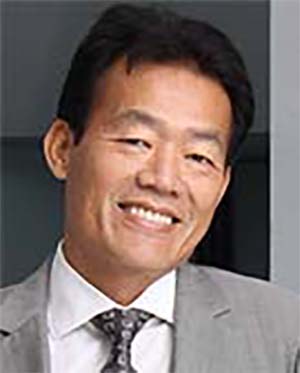 David Kan, CEO of Mustek
David Kan, CEO of Mustek
What are the biggest challenges facing today’s distribution channel in South Africa?
Our wonderful and totally unpredictable currency.
How do you see the future of the traditional channel evolving in the months and years ahead?
In the next three to five years, I do not see much change in the traditional channel. Distribution companies have value in the entire value chain … unless the vendors can shorten lead times, provide finance etc., and fulfill all the other functions that distributors do.
One thing in business you wish you had done differently (and why).
I wish I hadn’t taken the company public. As a small CAP company, the cost and reward is just not in proportion.
 Miles Crisp, CEO of Tarsus
Miles Crisp, CEO of Tarsus
What are the biggest challenges facing today’s distribution channel in South Africa?
- Very low margins and large numbers of competitive distributors.
- High working capital requirements.
- Extremely volatile rates of foreign exchange.
- Product deflation – more computing power for less, and migration to the cloud.
How do you see the future of the traditional channel evolving in the months and years ahead?
- More cloud services to be distributed, to replace the transactional.
- More third-party logistics services – moving other company’s goods for them.
- Consolidation into fewer distributors – especially for smaller brands.
One thing in business you wish you had done differently (and why).
- Removal of non-performers faster. Every time I have addressed non-performance – and agreed on a parting of the ways – I have allowed the process to take too long and given the benefit of the doubt to the individual for too long.
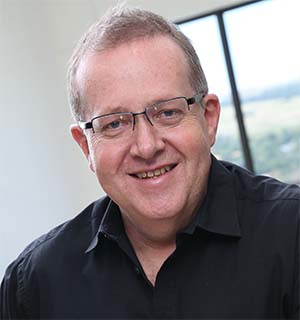 Gary Pickford, CEO of Tarsus Distribution
Gary Pickford, CEO of Tarsus Distribution
What are the biggest challenges facing today’s distribution channel in South Africa?
The biggest challenge is the channel’s biggest opportunity. CEOs, CIOs and CFOs of small, medium and large businesses are in desperate need to partner with a technology partner that has the skills and the know-how to take them on the journey from transactional to digital. To take their datacentres from on-prem, to off-prem/hybrid. To transform their manual business processes to world-class automated efficiency. To supply them with technology tools and platforms that will allow them to compete on the world stage.
The challenge is to raise the profile of reseller partners and get them noticed by these CEOs, CIOs and CFOs.
How do you see the future of the traditional channel evolving in the months and years ahead?
The traditional channel is being shoved into a world of services and value-adds. As the procurement of traditional technology by businesses across southern Africa moves to digital B2B platforms, the channel has no choice but to re-invent itself and focus on the supply of services and solutions that solve the end customer’s problem. The end customer wants the channel partner to provide the technology as part of a solution that helps them reduce costs, drive efficiency or drive innovation.
The key for resellers would be to develop a sales capability that earns the trust of the end customer and encourages them to partner on the journey from transactional to digital. The digitisation of a business is a journey. Its needs a long-term partnership between reseller and end user where a shared vision is built and clearly shows the steps needed to transition to digital over the next few years.
One thing in business you wish you had done differently (and why).
I wish we had been more proactive as an industry in providing viable and sustainable solutions to our educational sector in South Africa.
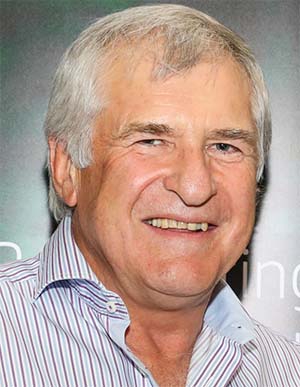 Neil Rex, MD of Drive Control
Neil Rex, MD of Drive Control
What are the biggest challenges facing today’s distribution channel in South Africa?
I think the biggest challenge the current distribution channel faces is recognising where they fit and the role they play. An example of the confusion can be seen by distributors acquiring resellers with the explanation that they are looking for margin business, and distributors doing business directly with corporates and government departments. This is often done in direct competition to the customer of tomorrow.
This has all been brought about as the pieces have been moved around the chess board, very much in the same way as the brick and mortar retailers face-off against the online challenge.
How do you see the future of the traditional channel evolving in the months and years ahead?
I do believe there will always be space for the distributor. The market just consists of too many users in different shapes and sizes. From a South African market perspective, I do believe that a bit of consolidation will still add value to the landscape.
One thing we mustn’t forget is the important role South African distributors play for our immediate neighbours.
I think the opportunity that was lost was not developing a model with the vendor and reseller where the disti played a role in the technical services space. This came about when the vendors took the approach that distis were to be only logistics and credit providing partners. They then went about outsourcing this activity to third-parties whereas it could have been a revenue stream for the disti. It might have alleviated the behaviour by distributors described above as the channels would have been better synchronised.
One thing in business you wish you had done differently (and why).
Hmmm … I would have retired at 60!
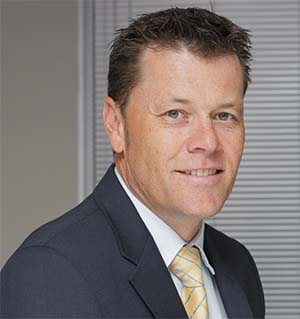 Craig Brunsden, MD of Axiz
Craig Brunsden, MD of Axiz
What are the biggest challenges facing today’s distribution channel in South Africa?
I don’t think our challenges are any different to any other channel players or, in fact, southern African companies in general at the moment. We are all coping with a struggling economy, political challenges and a number of serious social issues that the country is debating. Overlay on that all of the transformation the ICT industry is going through in the form of business models and IT consumption, and things get complicated. If we were only dealing with one of those factors it would be challenging, but put them all in the same pot and it’s “challenging times.” On the bright side, I believe distributors have a great position in all of it, and I personally feel privileged to be part of an era and group that can steer us through it all.
How do you see the future of the traditional channel evolving in the months and years ahead?
We’re expecting the current big trends to keep playing out. The key evolution or changes being: one, on-premise infrastructure to consumption-based IT usage models; and, two, multi-direction relationships within channel that are emerging to cope with challenges and take advantage of new opportunities. We see more demand for resellers and distributors to play a role in the channel now than at any other time over the last decade, but it’s the uncertainty and evolving nature of what we’re being asked to do that is challenging to read. I could think of worse – and certainly less exciting places – to earn a living!
One thing in business you wish you had done differently (and why).
I’ve been very fortunate to have no major business regrets. Having said that, I often regret missing the many small opportunities to spend more time on people than on the commerce. It’s such a tough balance to achieve under pressure.
 Hein Engelbrecht, MD of Mustek
Hein Engelbrecht, MD of Mustek
What are the biggest challenges facing today’s distribution channel in South Africa?
Firstly, I do think there are a couple of external factors that do affect the local market – the lack of economic growth globally, uncertainty around the US/China trade relationship, Brexit. Issues like that.
Locally, factors include very low economic growth, the tightening of government finance and, of course, the volatility of the rand. The average consumer seems to be under a lot of financial pressure and this also has a detrimental effect.
Continued pressure on margins means that we have to be creative in cost reduction initiatives to ensure sustainability. We also have to broaden our offering to the market to ensure larger share of wallet, and identify new business opportunities with higher margin.
How do you see the future of the traditional channel evolving in the months and years ahead?
I think B2B is going to be more influential going forward with e-commerce driving the process. Availability of credit will also restrain some channel partners. Channel partners will have to adopt a service, support and advisory role rather than relying purely on the sales of product.
One thing in business you wish you had done differently (and why).
We should have invested into the enterprise infrastructure space a lot earlier. If we had the option again, we probably would not have listed Mustek. Although there are many benefits associated with being listed such as transparency, good governance and access to capital, there are also a lot of costs involved in being a listed company.
 Spencer Chen, MD of Rectron
Spencer Chen, MD of Rectron
What are the biggest challenges facing today’s distribution channel in South Africa?
The market has been fraught with uncertainty in recent years and, as a result, customers are delaying their spend by sweating their assets. Distributors have also been undergoing their own business transformation journeys to adapt to some of the trend changes seen in technology in a bid to remain relevant.
How do you see the future of the traditional channel evolving in the months and years ahead?
Now more than ever, channel players need to be able to provide value-added services to end customers. With end customers becoming more sophisticated, it’s just not enough to sell a piece of tin. Instead, the channel needs to ensure their involvement throughout the consultation process. At the same time, partnerships between channel players have become essential. It is impossible for a single reseller to be all things to all people. However, with the right partnerships in place, they can be. This requires a high degree of trust between the various players. These partnerships can extend up and down the channel value chain.
One thing in business you wish you had done differently (and why)?
I would have liked to fast track digital transformation. With our customers in mind, we are already well on our way with this, making steady progress. We delayed the introduction of our CSP platform as it was not as customer-friendly as we would have liked. The changes we have made will assist our goal in making it easier for our customers to do business with us. We have also made radical changes to our partner website as customers were asking for a more seamless online ordering process. This new platform will be launched in the next few months. It will save customers valuable time by providing realtime information on stock availability, pricing, and specifications to their customers.
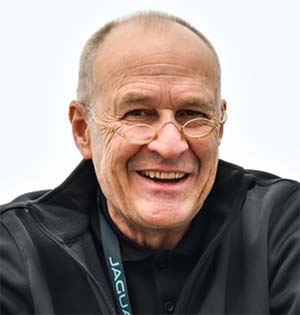 Graham Duxbury, CEO of Duxbury Networking
Graham Duxbury, CEO of Duxbury Networking
What are the biggest challenges facing today’s distribution channel in South Africa?
Optimising the digital transformation evolution is one of the biggest challenges facing the channel today. This is because it should be the prerogative of all players in the channel – not only the dealer/reseller/system integrator – to implement an appropriate solution.
For example, the revisions and extensions to the corporate network infrastructure needed to support new technologies designed to achieve greater performance and more impactful business outcomes need to be carefully strategised.
This presents an opportunity for distributors – who should be closely aligned and privy to the technological advances at vendor level – to bring this knowledge to resellers and system integrators looking to meet the often-diverse needs of customers.
The challenge facing all channel players today is to cooperate, pool knowledge and valuable experience in a bid to offer customers innovative solutions that are flexible, agile and easily compatible with existing infrastructures.These solutions must be future-proofed for customers who will be looking to use technology to increase efficiencies, ramp up security and boost revenue streams.
How do you see the future of the traditional channel evolving in the months and years ahead?
For some time now, we’ve highlighted the need for evolution in the distribution channel. Leading by example, we’ve demonstrated our ability to broaden horizons and work closer with dealers and resellers to deliver a better end user experience. By sharpening the focus on end user support – in close cooperation with the reseller network – advantages have materialised in the form of better customer retention, satisfaction and sales.
More specifically – and from a networking perspective – we are seeing increasing emphasis placed on automation due to the size and complexity of the network edge. Consequently, there are increasing opportunities for all stakeholders in the channel to focus on data intelligence, insights, analytics and contextual information around megatrends such as the Internet of Things (IoT), artificial intelligence (AI) and, of course, security, to deliver that sought-after “better experience”.
One thing in business you wish you had done differently (and why).
Break more rules! When we launched Duxbury Modems more than 30 years ago, we had no clear guidelines as to what would contribute to a successful business venture. We learned by a succession of achievements and failures. We drove by the seats or our pants. We could never have anticipated or planned for the challenges we effectively overcame and the elevated levels of success we ultimately achieved.
If there is one thing I would have liked to do differently over the last decade is bring more of this this mindset to the problems and challenges we face today.
Unfortunately, we are currently bound by a plethora of corporate rules and administrative regulations that tend to stifle the spirit of adventure in business. Nevertheless, I believe that fortune favours the brave. The more daring the vision, the more conventions ignored and unwritten rules broken, the more satisfying the achievement.
I’m a firm advocate of Sir Richard Branson’s dictum that “you’re never too old to rock, and you’re never too young to fly”.
 Rakesh Parbhoo, CEO of Westcon-Comstor
Rakesh Parbhoo, CEO of Westcon-Comstor
What are the biggest challenges facing today’s distribution channel in South Africa?
I would say the number one challenge is the challenge facing all businesses in South Africa today, being our economic and macro environment. Hesitancy to invest has a knock-on effect on IT infrastructure and solutions which, in turn, impacts our resellers and, of course, distribution. Combined with an extremely volatile exchange rate there is no doubt its tough out there.
That aside, I believe distribution is still faced with the challenge of evolving partner models and transaction models. This isn’t only a case where distribution is having to catch up, but rather that the entire ecosystem from vendors to customers is still testing new models. There isn’t yet any clear consistency, which could take some time to emerge.
How do you see the future of the traditional channel evolving in the months and years ahead?
I see small and mid-sized companies who specialise in certain technologies playing a greater role in the overall IT landscape. Customers of all levels are looking for specialists, particularly in certain technology areas such as security and BI. No single organisation is capable of broad IT services and infrastructure, as well as niche solutions and technologies. This opens up a significant advantage for new entrants and entrepreneurship opportunities that our country and economy desperately need.
One thing in business you wish you had done differently (and why).
There are always occasions where I wish I acted quicker or differently. But dwelling on what’s done won’t fix the future, so I try and learn from it and move on. Personally, I wish I had learnt to code – properly! The power of code today and what it can mean to a business is immense and having the ability to understand it allows for better decision-making and strategic initiatives.
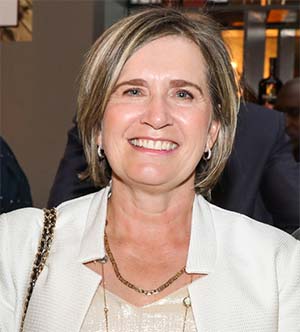 Jenny Rex, Sales Director at Drive Control
Jenny Rex, Sales Director at Drive Control
What are the biggest challenges facing today’s distribution channel in South Africa?
The economy, the economy, the economy.
How do you see the future of the traditional channel evolving in the months and years ahead?
The expression, “Plus ca change …” springs to mind with respect to the evolution of the channel – the more it changes, the more it remains the same. Evolution is a constant and predominantly presents in small increments.
Many pressures are unique to our region and don’t form part of the daily fare of First World distribution channels. As a result, the channel is necessarily adept at being reactive as opposed to pro-active.
Vendors dictating terms will continue to influence the future of the channel. We hope the despots are benevolent!
One thing in business you wish you had done differently (and why).
The reluctance to detach myself from being involved in too much detail has impacted my ability to do more. It’s a tough habit to kick.
 Debbie Abrahall, CEO of First Distribution
Debbie Abrahall, CEO of First Distribution
What are the biggest challenges facing today’s distribution channel in South Africa?
Besides the obvious, which is operating in a very tough economic environment which brings its own set of challenges such as budget constraints and margin pressure, it is the impact that cloud computing has on traditional distribution models.
We are still largely selling the same solutions, but how these solutions are consumed is having the biggest impact. The cloud era requires a different set of skills – both sales and technical. A different operating model as we move from capex to opex, and bigger investments in internal systems to support automation of a much higher frequency of transactions, redefining how distribution handles credit for partners in a consumptive world.
How do you see the future of the traditional channel evolving in the months and years ahead?
While on-premise solutions will never go away, public cloud is becoming increasingly popular and partners will need to figure out how to deliver services and solutions in this hybrid model. Customers are having the cloud conversation and partners who are not transitioning from traditional resell are going to be excluded from these conversations.
It is important that partners are able to have both the private/hybrid/public cloud discussion and provide the cloud services, consumption and billing accordingly. They need to undergo their own business transformation which means re-educating their staff and/or employing new staff who understand the cloud discussion, transformation of their own systems or aligning to a distributor who can provide them with a cloud aggregation platform that automates the consumption and billing for them and, lastly, understanding the impact that cloud has on operating profit as businesses transition from capex to opex.
One thing in business you wish you had done differently (and why).
Nothing really comes to mind. I have been in distribution for 25 years and therefore have only seen one perspective of the industry. Perhaps I should have spent some time working for a reseller or a vendor? I really have no regrets. I am quite calculated in my decisions and believe we live by our choices.
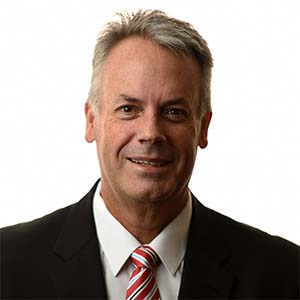 Anton Jacobsz, CEO of Networks Unlimited
Anton Jacobsz, CEO of Networks Unlimited
What are the biggest challenges facing today’s distribution channel in South Africa?
One of the greatest challenges today is vendor expectations for growth in dollar terms and for distributors to carry all the risk. To expect distributors to add value and maintain skills for single-digit gross profit margins is a bit unrealistic.
When it comes to partners, the challenge is to gain wallet share, the attention of sales teams and the adoption and implementation of product. There is a worrying lack of skills and knowledge among many resellers.
The landscape of the distribution model is changing and under pressure. Large companies like AWS and Microsoft with Azure are having an impact on traditional distribution business.
How do you see the future of the traditional channel evolving in the months and years ahead?
There is a big push towards cloud provisioning and SAAS both at distributor and partner level based on the perception that it is a lot cheaper. This is not always the case, but it is definitely a trend in the market at the moment to implement hybrid cloud environments. This adds to the complexity of managing security and network performance.
Managed services focus for things like security as a service, service assurance as a service (network management), NOC and remote branch management, for example, together with cost reduction around operations
Applications are fast becoming the assets of all business and the skills and knowledge required around this ecosystem is in high demand across the traditional platforms like Microsoft and open source.
Data management is another massive growth area where I believe we will see a lot of opportunity in the next few years.
All of the above will require deeper knowledge, better skills and stronger focus – specialists will evolve in the above areas who will see returns for their investments
One thing in business you wish you had done differently (and why).
I sold my IT business in Cape Town to EOH way back in 1998 and in hindsight it would have been great to have kept it and built on it.
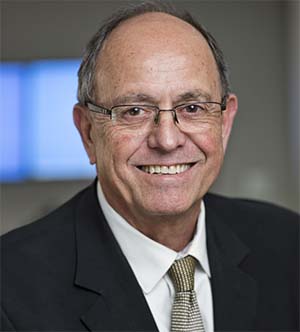 Jacques Malherbe, CTO of Axiz
Jacques Malherbe, CTO of Axiz
What are the biggest challenges facing today’s distribution channel in South Africa?
Distribution is facing a multi-faceted challenge to its position in the ICT value chain. The biggest challenge is fulfilling the ever-expanding role as a digital, technical and financial services distributor and remaining profitable as margins deflate and costs to serve increase.
Distributors are experiencing constant pressure on margins, coming from both the vendor and reseller communities, mainly in response to the market, but also to the unquenchable thirst for growth.
This is not only as a result of market conditions as a “discount war” has been raging since the days when there was still market growth. Whatever the drivers of the discount wars, money is leaving the industry. Not only are distributors’ margins constantly narrowing, but our industry is also at risk of losing its appeal to investors. Add to this profitability squeeze the business model impact of industry transformation, cloud consumption models and skills challenges, and you’ll understand that being in distribution is not for the faint of heart.
How do you see the future of the traditional channel evolving in the months and years ahead?
The role of distribution in the channel is evolving to where it is acting increasingly as a “shock absorber” for the channel. Distribution moderates and localises international vendors’ ambitions and also identifies where the opportunities for growth lie. It does this with channel partners that are able to overcome their own inertia and align their strategies with the distributor and vendor, to not only create new value in existing business streams, but venture into the white spaces that digital transformation is creating.
Both risk and investment are reduced when channel players function in concert. It seems that success comes not only from what we produce, but the way we do it. Distribution has in its DNA the ability to scale; if one adds scale to a business opportunity, a skill or an idea, the results are staggering. The channel evolution will have to include a shift in how we do things, how we partner and how we are productive in an ecosystem as opposed to going it alone, because any business that has to go it alone will experience a trough in income.
One thing in business you wish you had done differently (and why).
For some reason, I believe we are paying a penalty for being a laggard in transformation. As an industry that pursues emerging trends in technology and it’s derivatives, we should have been leading in transformation. We have an incredible pool of talent in our country which should have been absorbed and leveraged in our industry years ago. The incubation of entrepreneurial businesses and skills is, unfortunately, still fragmented and inefficient. It speaks to the fact that our industry lacks a cohesive voice and vision that can mobilise regulation and resources for a better outcome.
